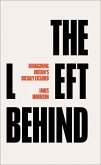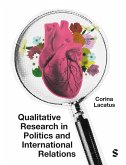This book traces the re-emergence of nationalism in the media, popular culture and politics, and the normalization of far-right nativist ideologies and attitudes in Austria between 1995 and 2015, within the framework of Critical Discourse Studies. In doing so, it brings together a range of theoretical and empirical approaches to identity politics, contemporary popular culture, far-right populism and commemoration.
While contradictory yet intertwined tendencies towards renationalization and transnationalization have often framed debates about European identities, the so-called refugee crisis of 2015 intensified and polarized these debates. The COVID-19 pandemic, as another major crisis, saw nation-states react by closing borders, while symbols of banal nationalism proliferated.
The data under discussion here, drawn from a variety of empirical studies, suggest that changes in memory politics-the way past events are collectively remembered and tied into current political discourses-are also linked to the dynamics of migration; the influence of financial and climate crises; changing gender politics; and a new transnational European politics of the past. Accordingly, the authors assess current challenges to liberal democracies, as well as fundamental human and constitutional rights, in relation to new trends of renationalization across Europe and beyond.
While contradictory yet intertwined tendencies towards renationalization and transnationalization have often framed debates about European identities, the so-called refugee crisis of 2015 intensified and polarized these debates. The COVID-19 pandemic, as another major crisis, saw nation-states react by closing borders, while symbols of banal nationalism proliferated.
The data under discussion here, drawn from a variety of empirical studies, suggest that changes in memory politics-the way past events are collectively remembered and tied into current political discourses-are also linked to the dynamics of migration; the influence of financial and climate crises; changing gender politics; and a new transnational European politics of the past. Accordingly, the authors assess current challenges to liberal democracies, as well as fundamental human and constitutional rights, in relation to new trends of renationalization across Europe and beyond.
Dieser Download kann aus rechtlichen Gründen nur mit Rechnungsadresse in A, D ausgeliefert werden.









